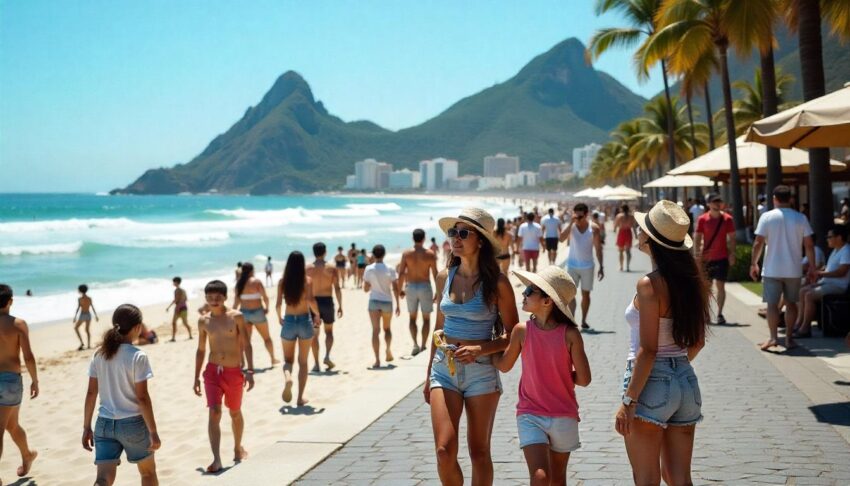- by foxnews
- 02 Jun 2025
Brazil Joins US, Spain, Italy, France, Portugal, and Thailand in Cracking Down on Beach Culture With New Rules on Music and Public Access Amid Broader Travel Crackdowns
Brazil has joined the United States, Spain, Italy, France, Portugal, and Thailand in enforcing strict new rules on beach culture — a coordinated shift across tourism-heavy nations to limit public access, regulate music, and push back against the disorder caused by mass travel along the world’s coastlines. The decision comes as mayors, municipal councils, and tourism boards across these countries grapple with growing complaints about noise, overcrowding, and unlicensed vendors dominating once-relaxed public spaces. From Rio to Barcelona, Miami to Phuket, the spontaneous rhythm of global beach life is being replaced by permits, patrols, and policies designed to restore order where tourism once moved freely.
- by travelandtourworld
- 29 May 2025
- in travel

In the United States, beach culture varies from state to state, but the direction is familiar: more rules, tighter enforcement, less tolerance for spontaneous or unlicensed activity.
Out west in California, cities like Santa Monica and Venice Beach have implemented similar systems. Street performers must register and perform in designated zones. Vendors selling food or beach gear without a city license are cited or removed. Noise rules are strictly enforced, especially in the evening hours when beachfront areas double as residential neighborhoods.
In Barcelona, live music and amplified speakers are banned on public beaches unless specifically approved. This includes everything from impromptu drum circles to DJs at beach bars. City police monitor beach activity closely, especially in the summer, and unlicensed vendors selling drinks, snacks, or souvenirs are routinely fined or evicted.
On the islands of Ibiza and Mallorca, the response has been even stronger. Beach parties have been curtailed through a combination of curfews, permit restrictions, and noise control zones. Boat parties that anchor near the shore and play loud music are no longer allowed in many areas, following complaints from residents and environmental groups.
On the island of Sardinia, the government has taken steps to reduce environmental damage. Visitors to protected beaches are prohibited from taking sand or stones, and plastic items like cups and straws are banned. Some beaches even require reservations during the high season, with daily limits on how many people can enter.
On the French Riviera, beaches are closely managed, and new rules continue to tighten control over public access and sound.
In Nice, Cannes, and Saint-Tropez, amplified music on public beaches is restricted. Any kind of organized entertainment must be approved by the city in advance. Unauthorized vendors are not allowed to sell on the sand, and public drinking is monitored during peak tourism weeks.
In places like Cascais and Albufeira, loud music on public beaches is prohibited, and beach events now require a municipal permit. Vendors selling snacks or souvenirs must be registered, and enforcement teams make regular rounds to check compliance. Alcohol consumption after dark has been banned in several areas following reports of rowdy behavior and late-night noise.
On beaches in Phuket, Krabi, and Koh Samui, local authorities have rolled out tough new regulations. Vendors must be licensed and operate in designated areas. The use of amplified music on the beach is generally banned, and night-time events now require government approval.
- by foxnews
- descember 09, 2016
History buff uncovers lost medieval monastery thanks to strange map symbol
Swedish archaeologists uncovered medieval monastery ruins in Derome, thanks to a history enthusiast's research of old maps and advanced radar technology.
read more




